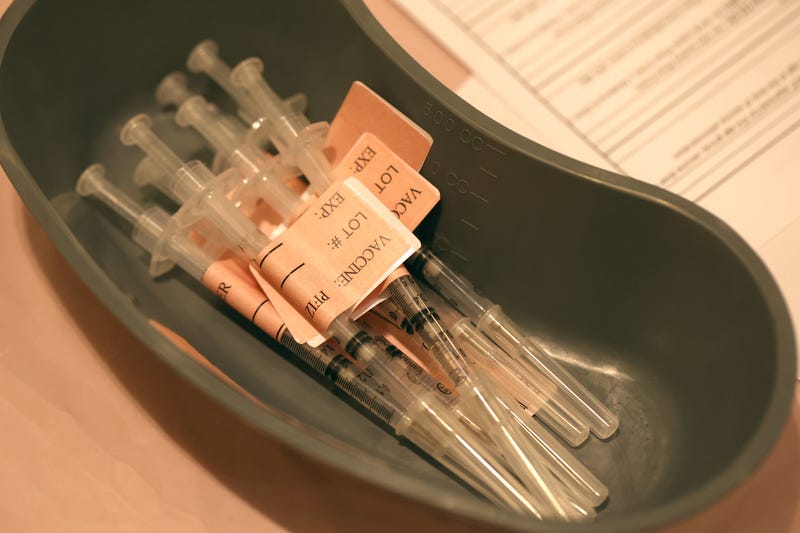
SAN FRANCISCO (KCBS RADIO) – Although the White House expects the next generation of COVID-19 vaccine boosters to be available to all adults and some children within weeks, that doesn't necessarily mean you should wait.
For more, stream KCBS Radio now.
Dr. Ashish Jha, the White House's COVID-19 response coordinator, said this week that additional doses targeting the omicron BA.4 and BA.5 strains could be available as soon as early September. Jha told NBC News' Lester Holt on Wednesday that "every American over the age of 12" is expected to be eligible for the shot.
So, who can afford to wait for the omicron-specific boosters to receive their second – or even their first – additional dose? Dr. Amesh Adalja, Senior Scholar at the Johns Hopkins Center for Health Security, said that "all depends on your risk factors for severe disease."
"If you're somebody that has a high risk for severe disease, you should be up to date now," he told KCBS Radio's Melissa Culross and Eric Thomas during Friday's "Ask An Expert" segment. "So if you're somebody that’s 65 years old, if you’ve got diabetes, you shouldn't be waiting."
Currently, only Americans who are at least 50 years old or immunocompromised are eligible for a second booster shot four months after their first.
But fewer than half of all vaccinated Americans have received an additional dose (48.4%, per the U.S. Centers for Disease Control and Prevention). A little more than a quarter (26.2%) of Americans who are at least 65 years old have gotten a second shot, compared to 11.1% of adults between 50 and 64 years old.
Booster adoption is lower among every successive age group currently eligible for just one dose. Just over 27% of American adults who are 49 and under have received a booster, as have 17% of children aged 12-17 and 3.8% of children aged 5-11.
The CDC and the Food and Drug Administration have not yet specified who will be first eligible to receive the updated doses, and "a person familiar with the discussions" told NBC News on Wednesday that eligibility will depend upon how many doses Moderna and Pfizer can manufacture and distribute by next month.
That could lead to a waiting game, which Adalja said Americans at lower risk of contracting severe COVID-19 can afford to play.
"For other individuals, healthy people, I think there is less of a benefit to the current boosters, and I think that may be something that the updated boosters may be something that would be attractive to them," he added. "But I think it all depends on your risk level."
DOWNLOAD the Audacy App
SIGN UP and follow KCBS Radio
Facebook | Twitter | Instagram

